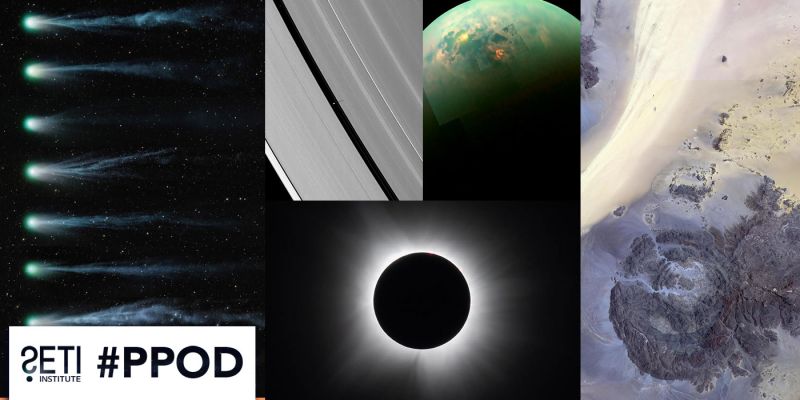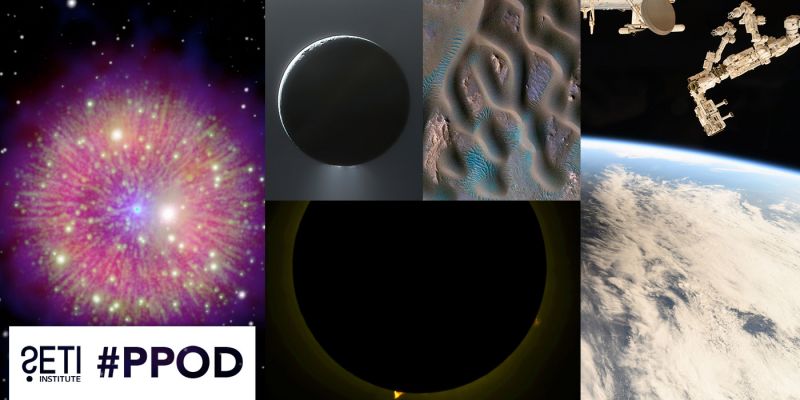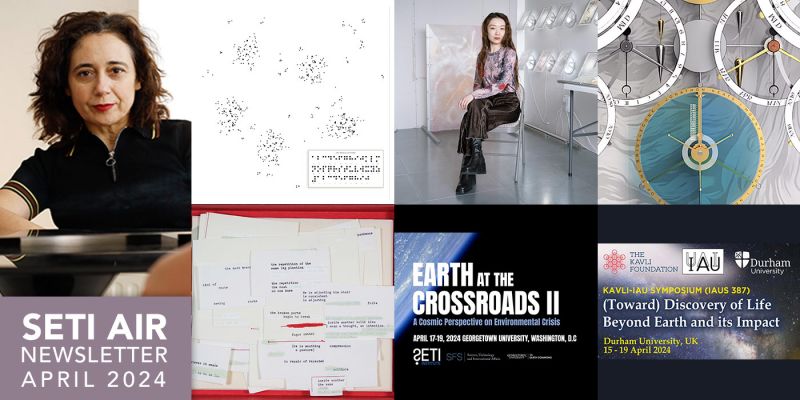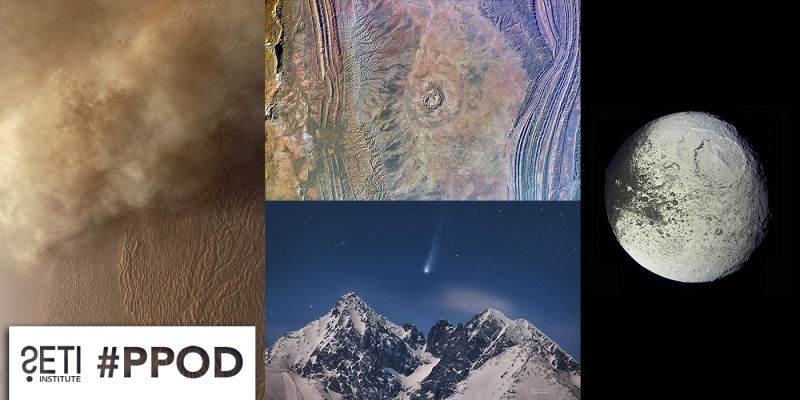Nathalie Cabrol broadens the approach to the question "Are we alone in the Universe?"
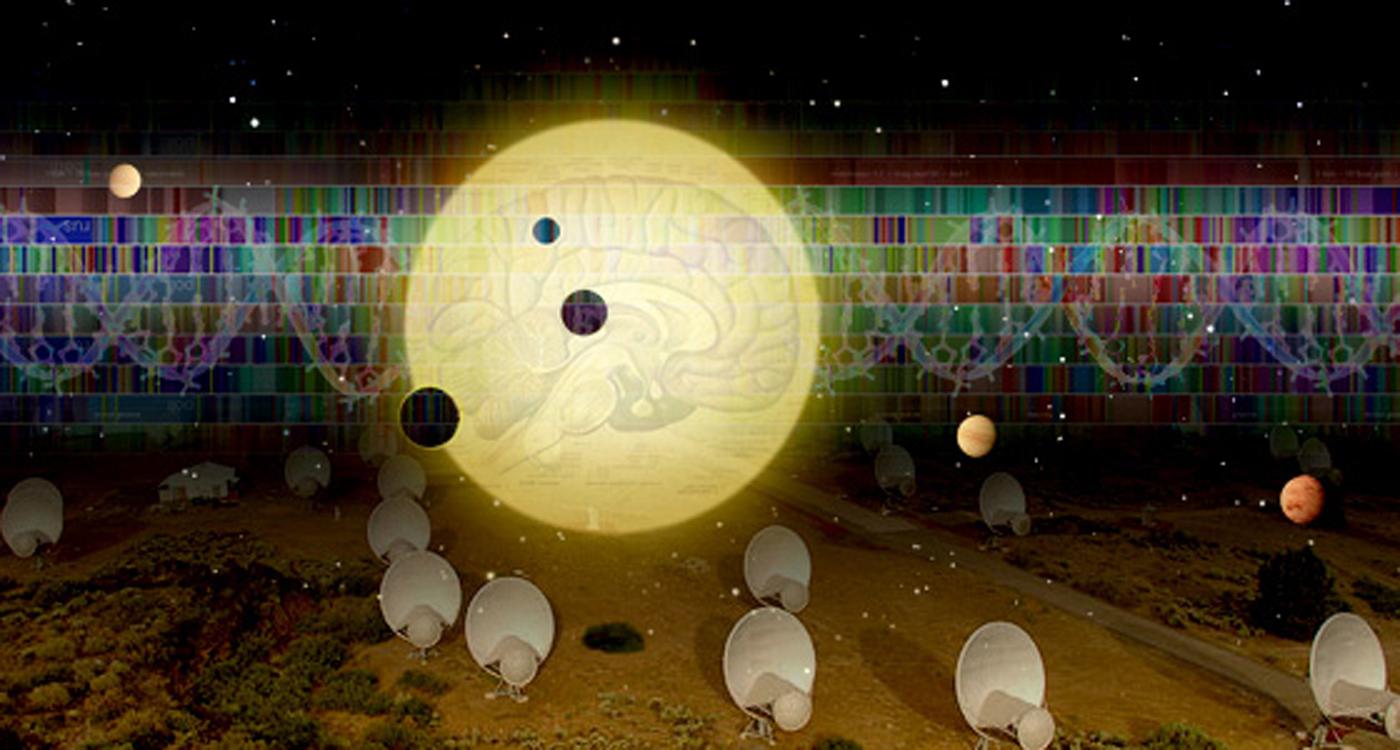
MOUNTAIN VIEW – The SETI Institute Director of Research, proposed a broader, multidisciplinary approach to the SETI search, beyond radio and optical modalities, in an article published today in the journal Astrobiology. “Are we alone in the Universe?” is the provocative question that inspires the scientific search for life beyond Earth. Today, we know definitively of only one planet that hosts life, and that is Earth. How can we find life, and in particular, intelligent life beyond our world?
“Alien Mindscapes – A Perspective on the Search for Extraterrestrial Intelligence” authored by Nathalie A. Cabrol, Director of the Carl Sagan Center for Research at the SETI Institute, suggests the need for a sea change in the search for extraterrestrial intelligence, where the full complement of physical, biological, computer and social sciences are deployed in a quest to look for life as we do not know it. Cabrol asserts that “To find ET, we must open our minds beyond a deeply-rooted, Earth-centric perspective, expand our research methods and deploy new tools. Never before has so much data been available in so many scientific disciplines to help us grasp the role of probabilistic events in the development of extraterrestrial intelligence. These data tell us that each world is a unique planetary experiment. Advanced intelligent life is likely plentiful in the universe, but may be very different from us, based on what we now know of the coevolution of life and environment.”
Led by pioneers such as Frank Drake and Jill Tarter, SETI – the Search for Extraterrestrial Intelligence – commenced in the 1960’s using radio astronomy to listen for signals from ET. Today, both radio and optical SETI searches seek signals generated by technology similar to ours. There are compelling reasons to continue with these endeavors, but equally compelling reasons to broaden the search criteria and expand the existing methodologies.
In her paper’s call to action, Cabrol promotes the establishment of a Virtual Institute with participation from the global scientific community. The new SETI Virtual Institute will integrate our new knowledge to understand who, what, and where ET can be, and step beyond the anthropocentric perspective. New detection strategies generated by this approach will augment our chances of detection by identifying new survey targets. The purpose is to expand the vision and strategies for SETI research and to break through the constraints imposed by imagining ET to be similar to ourselves. This new endeavor will probe the alien landscapes and mindscapes, and expand our understanding of life in the universe.
“The timing is right for SETI research around the world to open a new chapter in its history. The SETI Institute is taking the lead on this new path,” says Bill Diamond, President and CEO of the SETI Institute. “In the coming months, we will invite the US and international research communities to contribute to a new scientific roadmap for SETI. We will explore resources for the development of a Virtual Institute and an intellectual framework for projects focused on the advancement of knowledge on extraterrestrial intelligence.”
About the SETI Institute
Founded in 1984, the SETI Institute is a non-profit, multi-disciplinary research and education organization whose mission is to lead humanity’s quest to understand the origins and prevalence of life and intelligence in the Universe and to share that knowledge with the world. Our research encompasses the physical and biological sciences and leverages expertise in data analytics, machine learning and advanced signal detection technologies. The SETI Institute is a distinguished research partner for industry, academia and government agencies, including NASA and NSF.
Contact information
Nathalie Cabrol
SETI Institute
Email: ncabrol@seti.org
Tel: +1 650-810-0226
Seth Shostak
SETI Institute
Email: seth@seti.org
Tel: +1 650 960-4530
Bill Diamond
SETI Institute
Email: bdiamond@seti.org
Tel: +1 650 960-4510

